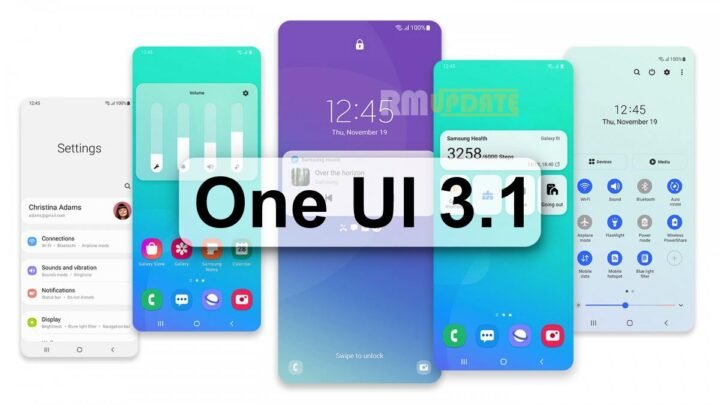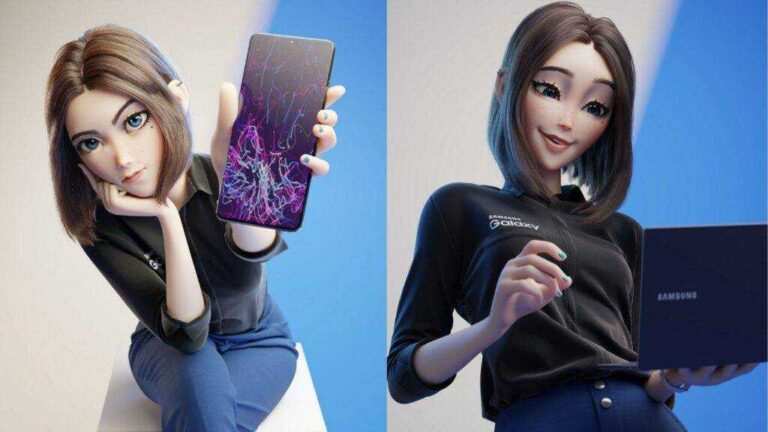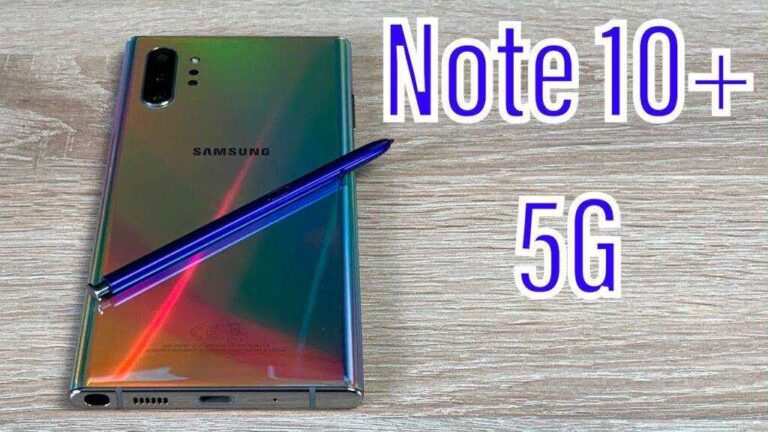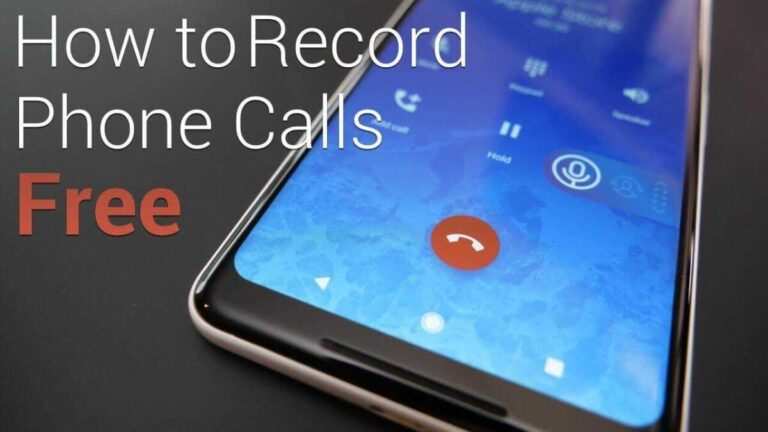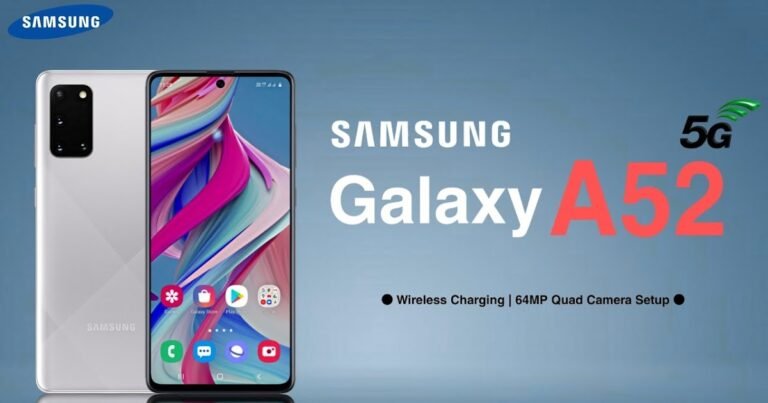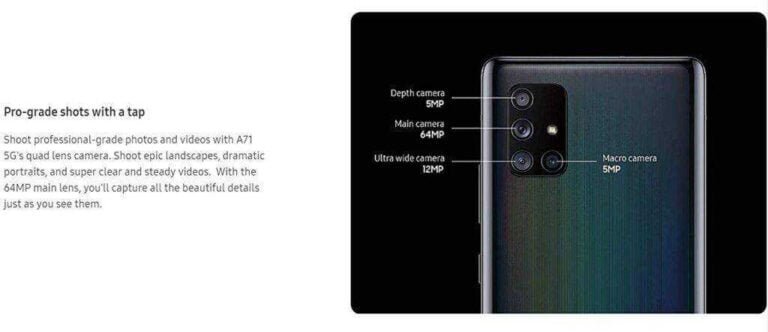Samsung One UI 3.1 Vs One UI 3.0 – What Are The New Added Features
Samsung has done a great job in recent weeks updating its devices to One UI 3.0 based on Android 11. The software update has already been rolled out to several Galaxy devices and we expect Samsung to close its quick rollout schedule for the next software version – One UI 3.1 features – keeps.
For the uninitiated, One UI 3.1, also based on Android 11, debuted with the Galaxy S21 series earlier this month and includes some new features and changes.
The update has already been rolled out to Galaxy Tab S7 and Tab S7 Plus and is expected to roll out to other Galaxy devices in the coming weeks. While you wait for the update to roll out on your device, here’s a quick look at all the new features and software changes in One UI 3.1.
Note: Not all of these features are available on other Galaxy devices. To find out what features stand for your device, please read the update changelog carefully when the One UI 3.1 update arrives on your device! This post also does not include some of the new features exclusive to the Galaxy S21 series.
New One UI 3.1 Features
Google Discover feed integration
You can customize the action launcher on One UI 3.1 to display the Google Discover feed on the min-one screen. By default, the action launcher is configured to display Samsung Free on-screen minus one, but you can change it by following these steps:
- Touch and hold on the home screen to access personalization settings.
- Scroll all the way to the left until you see the next page
- Tap the Google Discover option
The Google Discover feed will then appear on the screen minus one. You can return to Samsung Free at any time by following the same steps. You can also turn off the feature completely by tapping the switch in the top right corner.
Google Home device control
Samsung has integrated the Android 11 device management feature into the “Devices” option in the quick settings. This feature allows you to add Google Home smart home devices and other compatible smart home apps to this menu. With this feature, you can easily control all your connected Google Home devices without opening the Google Home app.
Google Duo integration
Samsung has worked closely with Google to provide better Google Duo integration in One UI 3.1. The latest version of the company’s software offers seamless integration of Google Duo into the stock dialer app.
As you can see in the screenshots below, the three-dot menu in the title selection now has a new option “Make video calls to”. If you tap this option, you can select Google Duo as your preferred video calling service.
After selecting Google Duo as your default video calling service, you will see a new Google Duo button next to the call button on the dialer when you select an available contact on Google Duo. You can tap this button to immediately start a video call with the contact.
In addition to the seamless integration of Google Duo into the stock dialer, the Galaxy S21 series also supports the Google Duo auto frame function. The feature automatically keeps you in the foreground during video calls, eliminating the need to constantly adjust the frame. At the moment, it’s unclear whether the feature will roll out to other Samsung devices with the One UI 3.1 update.
Video call effects
On the subject of video calling, let’s take a look at another great new feature in One UI 3.1 – Video Call Effects. The feature can be found in the “Advanced Features” section of the device settings, and you can automatically add cool background effects during video calls.
As you can see in the attached screenshots, the feature currently offers three background effects: blur, color, and image. When enabled, the Blur option adds a background blur to video calls, the Color option covers the background in a solid color, and the Image option covers the background with a custom image of your choice.
After selecting one of the three options, you can tap the “Preview” button to see what the wallpaper will look like during video calls. The page also lists supported apps that take advantage of the effects of video calling once the feature is enabled.
Remove GPS location data from photos and share privately
At the Galaxy Unpacked event, Samsung talked about a new privacy feature for the Galaxy S21 series. This feature makes it easy to remove location information from photos before sharing.
To do this, all you need to do is select a photo in the Gallery app, hit the Share button, then tap the “Delete Location Data” option below the preview in the share sheet. Using this feature removes the photo from location information such as the latitude and longitude of the place it was taken before being shared.
Private sharing option in One UI 3.1 settings
To give you more control over the content you share, Samsung has also launched a new private sharing app. You can use it to share any file including images, videos, and documents, and choose when to revoke access to the file. However, you must first enable the app via your device settings.
You can do this by going to the biometrics and security settings and tapping on the new Private Sharing option. A new window will open where you can add the Private Sharing app to the app drawer.
You can then open the app by tapping the Private Sharing icon, tapping the “File Sharing” button in the menu, and then selecting the recipient on the next screen. With the app, you can manually revoke access to the file at any time, or you can wait two days for the recipient’s access to automatically expire. The new Private Sharing app works on all Galaxy devices running Android 9 or later, but both the sender and recipient must have the app installed on their device to share files.
Continue with apps on other devices
If you are part of the Samsung Galaxy ecosystem and regularly use more than one Galaxy device, One UI 3.1 has a great new feature for you. The feature, called “Continue App on Other Devices”, is located in the Advanced Features section of the device settings. Once enabled, you can continue using an app on another device connected to the same Samsung account.
To continue using an app on another device, simply open the Recents screen on the other device and tap the new icon. You can also use this feature to copy and paste text, images, and more from one device to another. But this feature needs to be enabled on both devices for it to work as expected. You also need to enable Bluetooth on both devices and make sure they are connected to the same Wi-Fi network.
It is worth noting that this feature currently only works with the Samsung Internet and Samsung Notes apps. But Samsung may soon be expanding support to more apps.
Eye protection
Eye comfort protection is a new feature in One UI 3.1 that builds on the Blue Light Filter feature of previous versions of the software. The function is found in the display settings and you can limit the exposure to blue light by changing the colors of the display.
As you can see in the attached screenshot, the feature includes two options: Adaptive and Custom. The Adaptive option automatically adjusts colors based on the time of day to reduce blue light. When using this feature, you will notice small color adjustments during the day and noticeably warmer colors at night.
The Custom option allows you to manually select the color temperature according to your preferences. You can also set up a schedule with it to automatically enable your custom color settings. You can activate your custom color settings at any time, change from sunrise to sunset, or change them at a specific time.
Objects Eraser
Galaxy S21 devices also come with a new Object Eraser feature in the Gallery app. This feature makes it easy to remove unwanted objects from photos. However, the feature is not enabled by default. To enable it, you need to tap on the three-dot menu button in the top right corner of the editor. From the drop-down menu, select the new Labs options and then tap the switch next to the “Object Eraser” feature on the next page.
Once the feature is enabled, you will see a new icon in the image editor with a prompt highlighting its functionality. To remove an object from the image, tap the new icon and then select the unwanted object on the next page. The function will then highlight the selected object and you can tap the “Delete” button to delete it. During my tests, I found that the “OK” function works by removing objects. Your mileage may vary.
The New One UI 3.1 Features For Camera
The director’s View
The new director view feature on the Galaxy S21 series allows you to record video from all cameras on the device simultaneously. On the Galaxy S21 Ultra, this means you can access four different camera angles at the same time on the viewfinder and switch between them seamlessly.
Vlogger view
The Vlogger display on Galaxy S21 devices allows you to use the front and rear cameras at the same time. This is great for vloggers as it allows them to capture their reactions while simultaneously recording something with the rear camera. It’s worth noting that while Samsung talked about the feature at the Galaxy Unpacked event, I couldn’t find it on my review device.
Single-Shot 2.0
Samsung has updated its Single Take feature with the launch of the Galaxy S21 series, and you can now capture more frames per second. Besides, Single Take 2.0 also records slow-motion clips.
Furthermore, the feature now also allows you to choose the type of shots you want to take. You can tap on the new arrow icon in the top right corner and then select shots from the next menu.
The feature offers 6 options to choose from: filtered videos, filtered photos, clips with speed effects, portraits, wide / cropped photos, and featured videos.
Improve focus
The camera app on the Galaxy S21 Ultra also includes a focus enhancement option that appears in the bottom right corner of the viewfinder while using the 108MP main camera. The switch appears only when trying to take a photo of a nearby object and keeps the entire object in focus.
A UI focus enhancer 3.1
This is a big problem I had with the Galaxy Note 20 Ultra’s main camera and I’m glad Samsung added this new feature to fix it. I sincerely hope Samsung will roll this out to the Galaxy Note 20 Ultra and Galaxy S20 Ultra with their One UI 3.1 update.
One UI 3.1 for Galaxy Tab tablets
Samsung recently began rolling out the Android 11-based One UI 3.1 update for the Galaxy Tab S7 and Tab S7 Plus. The update adds a host of new productivity features, including multi-device collaboration, a second screen, and sharing the wireless keyboard. You can read more about these new productivity features here.
Other minor changes in One UI 3.1
In addition to all the above features, Samsung has made some other minor changes to One UI 3.1. Here is a quick rundown of all the tweaks I was able to find on my Galaxy S21 Ultra:
- The device now offers a wider selection of vibration patterns for calls.
- The sound and vibration settings now also include an option to select vibration patterns for notifications.
- You can now access the home screen settings from the Settings app.
- Samsung has added a new option in the privacy settings that allows you to disable personalization services (personalized ads/recommendations) while using mobile data.
- One UI 3.1 contains some additional custom calling backgrounds,
- The Clock app now includes a new way to go to sleep and alarms.
- Live Focus and Live Focus video in the camera app have been renamed to portrait and portrait video.
- Samsung Free is now available as a standalone app.
Which of these One UI 3.1 features are you most excited about? Share your thoughts in the comments below!

